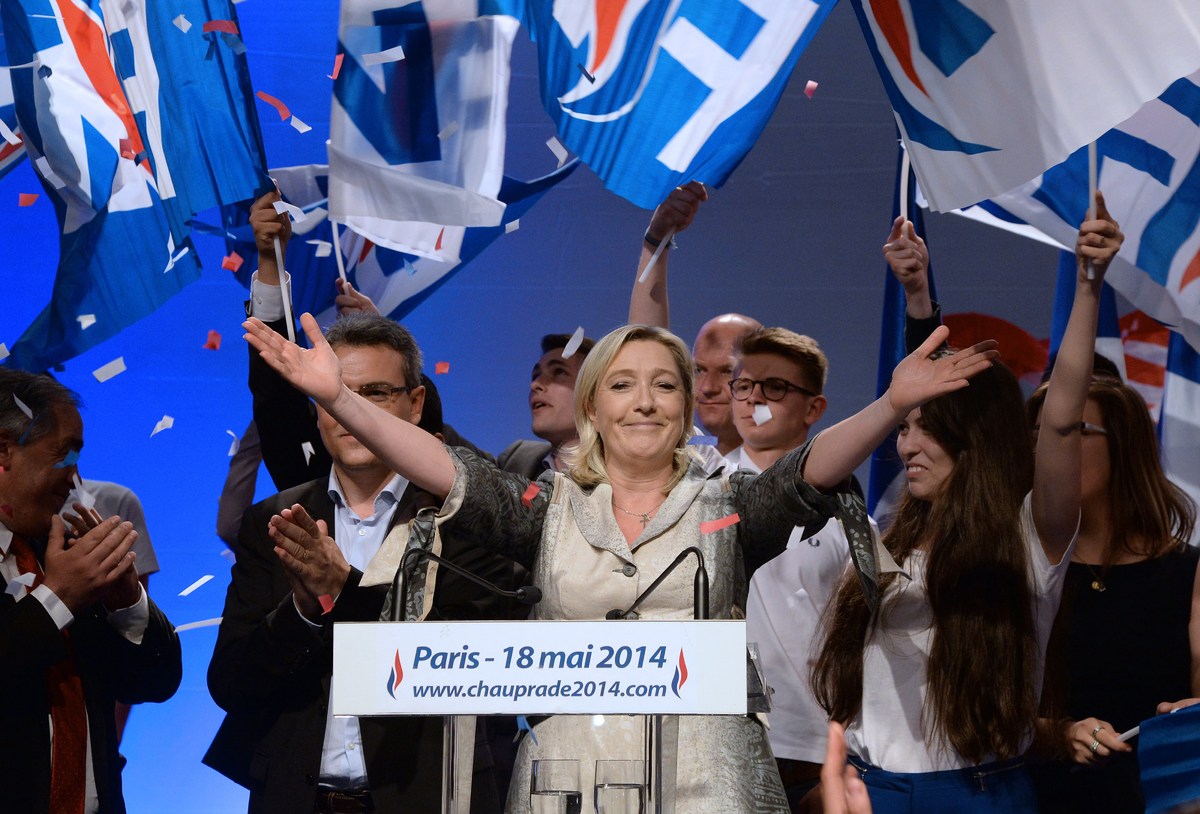
European Elections: 9 Scariest Far-Right Parties Now In The European Parliament
May 29, 2014
Did Dogs Help Drive Mammoths to Their Graves?
May 29, 2014Last weekend Europe went through one of its periodic moments of change. It used to be that it did it with wars. Now changes come through votes and sanctions, but the passions and rivalries are still there. So is history. And hatred.
The citizens of the European Union went to the polls upon a background of disaffection: with the continuing financial and euro crises, with the European Union itself, and with their own politicians. And in many cases they delivered a rude awakening to their ruling classes: In the United Kingdom, France, Austria, and Denmark, right-of-center, anti-immigrant parties made important gains. In Greece, an extreme left-of-center party gained the largest share of the vote. In Germany a neo-Nazi party garnered enough votes to get a seat in the new parliament, and in Greece a party that is effectively of the same hue took 10 percent of the vote.
Continue reading below
These are strong protest votes, of which the most significant is the 25 percent share taken by the Front National in France, an established party with racist, anti-Semitic, and protectionist policies. It made significant gains in the local elections in France in April, and it has now built upon them in the European elections. The one point it clearly shares with the other EU protest parties is a rejection of modernity. These parties are the Luddites of the age of globalization, offering their voters — largely white, older blue-collar men and unemployed, uneducated youths who have been left behind by modernity — a bucolic vision of the past, free of immigrants, the EU, and poverty, but full of strong national values. It is history rewritten: mythical but compelling narratives — a rejection of the professional political class across the continent that offered these disenfranchised people vague promises of change and renewal.
Despite these negative trends, it is important to note three core issues. First, the majority of votes in the European elections went to pro-EU parties; the protest votes are the extremes demanding honest attention, not the core of the continent. Second, these protests were delivered at the ballot box, not through the barrel of a gun; the EU elections were the second largest exercise in democracy after the Indian elections, with an electorate of over 350 million eligible voters and a 43 percent turnout. Third, if the political classes do not attend to the call of the disenfranchised, the protest can turn to hatred. It has before, and it can again. Europe has a bad history on the matter.
All three points are no less relevant to the election in Ukraine, in which Petro Poroshenko won an outright victory in his bid to become president. The election was pro-EU — in fact, the desire of many in Ukraine to move closer to the EU rather than Russia is what sparked the revolution in the first place. It was also democratic, as confirmed by over 1,000 international observers — notwithstanding the approximately 6 million voters who were barred from the polls by the pro-Russia insurgents that have taken over swathes of eastern Ukraine. The core issue for the insurgents, and many who support them, is disenfranchisement, from the west of Ukraine and from modernity. They have an alternative narrative of their present and past, strongly fueled by a nationalist Russia, that claims Kiev and western Ukraine is full of fascists, anti-Semites, and descendants of Nazi collaborators. They are already on the verge of hatred, and as the government has now sent in stronger army units to retake these insurgent strongholds, there is a chance the hatred will bloom, together with a new myth of heroism and disenfranchisement. Western Ukraine, for its part, has also produced its version of history, with Russia cast as anti-Semitic and the resurrection of the Soviet Union and the Communists that subjugated Ukraine.
This instrumentalization of the Jews by claims of anti-Semitism — which, given the long history of pogroms by both sides, is best set aside — brings us back to Brussels, and the recent shootings at the Jewish Museum. The suspect has not been caught, but his profile was caught on video. In Belgium, as in a number of European states, there is a small segment of disenfranchised radicalized youth that have gone off to fight in Syria, in order to participate in a jihad. Some have started to come back. They are as alienated from societies in Europe as they are inundated with extreme beliefs. They hate modernity, the West — and Jews. Ironically, the protest voters in the EU probably dislike these young men, too, since they tend to be first- or second-generation immigrants. If unchecked, the dislike could turn to hatred.
Democracy and protest; anti-Semitism and history; hate crimes and a new beginning; the past and the future.
A snapshot of Europe in mid-2014.
